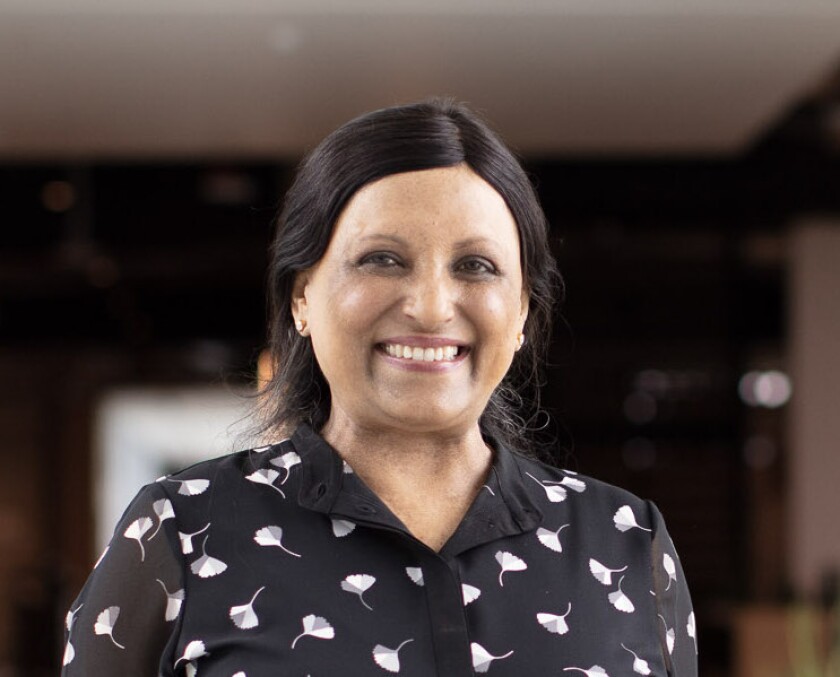Global confidence improved significantly in the third quarter of the year among accountants, despite fears of a prolonged economic recession amid the novel coronavirus pandemic, according to a survey of members of the Association of Chartered Certified Accountants and the Institute of Management Accountants.
The ACCA and IMA’s latest "Global Economic Conditions Survey," released Tuesday, indicated a global recovery through the second half of the year after an unprecedented collapse in economic activity during the first half. However, while there are signs of an economic expansion late this year, the poll also showed increasing expectations that significant economic recovery will be pushed into 2021.
Rathi Murthy is the Chief Technology Officer at Varo Bank, the first nationally chartered all-digital consumer bank in the United States. In this role, she leads the company's end-to-end technology strategy, overseeing the design and development of secure, scalable, and AI-powered digital banking platforms. Her leadership is instrumental in advancing Varo's mission to build inclusive, accessible, and real-time financial solutions for millions of consumers.
A seasoned technology executive, Rathi brings over 25 years of experience leading innovation and digital transformation at some of the world's most recognized technology and financial services companies. Prior to joining Varo, she served as Chief Technology Officer and President of Expedia Product & Technology at Expedia Group, where she modernized the company's global travel infrastructure, integrating AI-driven personalization, modular architecture, and advanced cloud capabilities across its family of brands.
Earlier, she held executive leadership roles at Verizon Media and Gap Inc., where she led enterprise cloud migrations, e-commerce platform evolution, and large-scale product delivery initiatives across global markets.
Rathi also served as Senior Vice President and Chief Information Officer of Enterprise Growth at American Express, where she was responsible for the technology strategy and operations of the Serve platform and a suite of prepaid products including Bluebird.
Rathi's early career includes engineering leadership roles at eBay, Yahoo!, Sun Microsystems, and WebMD, where she consistently delivered improvements in platform stability, operational agility, and customer experience.
In addition to her executive work, Murthy is a board member at PagerDuty, Inc., a leader in digital operations management, and serves as an External Expert Advisor to the University of San Francisco's Board of Trustees Committee on Information Technology Strategy. She is also a regular speaker at industry events and leadership forums, offering thought leadership on topics such as fintech innovation, integrating AI, platform transformation, and executive technology leadership.
Guy Baker, CFP, Ph.D., is the founder of Wealth Teams Alliance in Irvine, California.
He is a member of the Forbes 250 Top Financial Security Professionals list and is author of "Maximize the RedZone," a guide for business owners, as well as "The Great Wealth Erosion," "Manage Markets, Not Stocks" and "Investment Alchemy." He received the 2019 John Newton Russell Memorial Award for lifetime achievement in insurance.
Activity indicators such as orders, capital spending and employment all rebounded somewhat from the low points seen in the Q2 survey. The global orders balance recovered by nine points in the third quarter, signalling a modest turnaround. Other indicators, such as concern that customers and suppliers could go out of business, also improved a bit from the extreme levels seen in the second quarter.
“The nature and prolonged duration of the COVID-19 shock means that it is likely to result in permanent changes to the structure and potential growth rates of economies,” said IMA vice president of research and policy Raef Lawson in a statement. “Higher private sector savings may be one outcome: households and companies limit consumption and investment respectively as they remain cautious in the face of extreme uncertainty. This suggests that the public sector may have to run significant fiscal deficits for some time in order to support overall demand. For now, at least mounting public sector debt can be sustained since interest rates are exceptionally low.”
Confidence in Q3 recovered strongly to a three-and-a-half-year high as the deep pessimism caused by lockdowns lifted in most regions. North America appeared to be the most optimistic region surveyed, while South Asia had the largest proportion of respondents not anticipating recovery until next year.
In North America, the orders balance recovered significantly in the third quarter, according to the report, but remains at a record low level,
The report found that confidence in the third quarter recovered strongly to a 3 1/2-year high as the deep gloom caused by lockdowns lifted in most regions; North America is the most optimistic, while South Asia has the greatest proportion of respondents not expecting recovery until next year.
In North America, the report found that the order balance recovered significantly in the third quarter but remains at a record low level, with the exception of the previous quarter. In addition, the increase in confidence this quarter was the biggest quarter-to-quarter increase in the history of the survey, reflecting the turnaround in the economic outlook between June and September.
Overall, results for the North American region are consistent with a reasonably strong recovery in the second half of the year. The second quarter saw some record quarterly falls in gross domestic product, including 9.1 percent in the U.S. The current forecast for quarter on quarter GDP in the third quarter is around 7 percent in the U.S.
Expectations of substantial economic recovery have shifted toward later in 2021 over the past three months, including above 50 percent in North America. Responses to this question indicate the realization that the economic damage caused by the pandemic and the restrictions associated with it are likely to persist well into 2021.
The survey indicated a clear regional pattern, with the strongest access to finance seen in the developed markets of North America and Europe, and the weakest in emerging markets. This did not change between the June and September surveys.
The momentum of the recovery is already showing signs of fading, however. “More generally the continued prevalence of the virus means that social distancing rules and other containment measures will persist for the foreseeable future,” said Warner Johnston, head of ACCA USA, in a statement. “This will adversely affect consumer demand in particular areas. Most economic shocks do not result in permanent changes in economic behavior. But the COVID-19 shock is likely to be different: it already has lasted for the first three quarters of 2020 and will do so well into 2021. This, and the nature and scale of the economic impact, means that permanent changes to the structure of economies are inevitable.”



